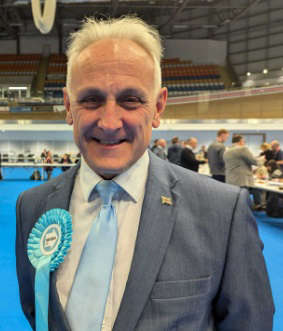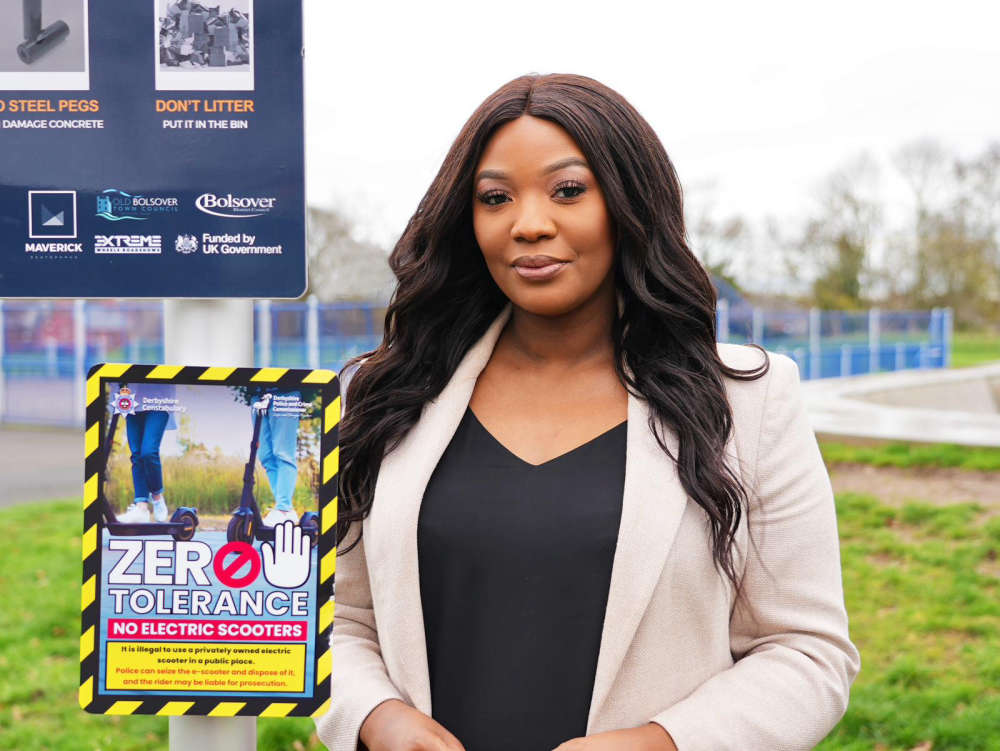
“The old political parties should cry into their own tea,” Derbyshire’s Reform county council leader has said in response to a letter on SEND from the UK’s education secretary.
Cllr Alan Graves, Reform UK’s Derbyshire County Council group leader, made the comments in response to a letter from education secretary Bridget Phillipson who wrote to him to outline their policies on special educational needs and disabilities.
Ms Phillipson wrote to Cllr Graves, who is also a Derby city councillor: “Your leader, Nigel Farage, claimed that by diagnosing children with additional needs, ‘we’re creating class of victims… if you are told you’re a victim, and you think you’re a victim, you are likely to stay [a victim]’.
“Your party’s spokesperson, David Bull, doubled down on Mr Farage’s comments, claiming on national television during local elections coverage that ‘Many of these kids are naughty kids, bad parenting’.
“These comments have, understandably, caused considerable concern within the SEND community, with families who have experience of the system worried that your party judges their parenting, doesn’t understand their children’s needs, is out of touch with the realities they face on a daily basis and plans to withdraw much-needed support.
“Given your party has made a virtue of plans to cut council spending, but has been unclear where exactly you will make these cuts, I must ask the following questions:
“Will you protect the services that support children with additional needs from bearing the brunt of your cuts?
“Will you distance yourself from the comments made by your leader, Nigel Farage, and party spokesperson, David Bull?
“Will you back the Labour government’s work to ensure that schools are set-up to meet children’s needs, ensuring high standards of learning and behaviour in every classroom so all young people can achieve and thrive?”
This comes after Cllr Graves said, on his appointment as leader, that his controlling group had “not had any discussions with anybody yet” and “I am sure we might actually come up with something” when asked about updates on policies such as for special educational needs.
Cllr Graves, in response to Ms Phillipson’s letter, said: “I think it is political posturing and I am deciding whether to reply to her or not. That is all I’ve got to say on it.
“The policies on the county council are already there which we have to administer, however, over the term of office we may want to change some of them though that won’t be happening just yet, you’ve got to give us some time to think about things like that.
“First of all we have got to think about what the policies are at the moment and how they align with how we think and feel.
“If anybody asks us what our education policy is, the answer is, we will let you know.”
Cllr Graves was asked to answer criticism that his group should have formulated its plans for office, before office, not after taking control.
He said: “I think that the old political parties are upset by the fact that we won an election that would clearly wipe them out if there was a national election and I think they should cry into their own tea.”
A damning Ofsted and CQC report in 2024 assessing Derbyshire’s support of children with special educational needs highlighted an issue raised by families for years, that there were “widespread and systemic failings” that needed to be urgently addressed.
This included core issues with communication and in substantial delays far outside the legal limit, with children and families often waiting entire school years for support.
Over the year March 2023 to March 2024, a total of 55 complaints were investigated by the local government and social care ombudsman and 47 were upheld – 85 per cent.
This led to a total of more than £230,000 being paid out in compensation to failed families, up from £36,000 in the previous year.
The vast majority of these payments related to the handling of education, health and care plans (EHC Plans), legal documents between the council, school, family and child outlining care provided to children with special educational needs.
As it stands, the council has more than 6,000 EHC Plans on its books, which has doubled in the past few years, and it had said that as of August last year it had already received 7,100 requests for these documents.


 Space race! Borough Council offers R&D boost for satellite and F1 firm
Space race! Borough Council offers R&D boost for satellite and F1 firm
 New Chief Executive recommended by Derbyshire County Council
New Chief Executive recommended by Derbyshire County Council
 Change to Employment Rights Bill a ‘step forward’ says Chamber
Change to Employment Rights Bill a ‘step forward’ says Chamber
 PCC urges residents to leave e-scooters off the shopping list
PCC urges residents to leave e-scooters off the shopping list




